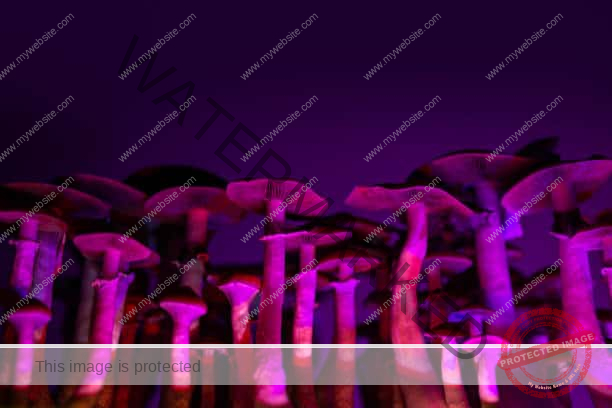
Are Psilocybin Mushrooms Addictive
4 December 2024
There is a huge ongoing debate about whether or not psilocybin mushrooms can be addictive. The short answer to this question is no they are not addictive. Like any other substance this substance can be misused, but it will not cause dependency, nor would anyone wish to take it multiple days in a row. This is the same with any other psychedelic in that when used once your brain needs to reset before you can take more to have another effect. In this article, we’ll explore the concept of addiction, the effects of psilocybin on the brain, and whether psilocybin mushrooms are addictive.
Understanding Addiction
Addiction is a complex condition characterized by compulsive substance use despite negative consequences. It often involves hijacking the brain’s reward system, leading to cravings and difficulty stopping use. Substances commonly associated with addiction include alcohol, tobacco, opioids, and stimulants like cocaine or methamphetamine.
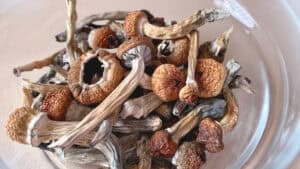
Psilocybin’s Impact on the Brain
Psilocybin, the active compound in magic mushrooms, alters serotonin receptor activity in the brain. This interaction leads to altered perceptions, visual distortions, and changes in thought patterns. Unlike highly addictive substances, psilocybin does not directly target the brain’s dopamine reward system. Instead, it triggers a unique experience that can be intense and introspective, discouraging frequent use.
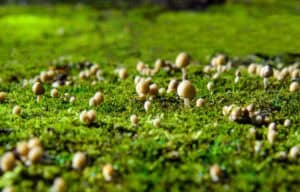
Are Psilocybin Mushrooms Addictive?
No, psilocybin mushrooms are not considered physically addictive. Unlike substances that cause physical dependence or withdrawal symptoms, psilocybin does not create cravings or compulsions to use it repeatedly. Tolerance to psilocybin builds quickly, reducing the likelihood of regular use.
However, misuse of psilocybin mushrooms is possible, especially for individuals with a history of substance abuse or mental health issues. The intense experience can be challenging, and some people may feel the need to use it frequently to recreate the effects. This is why responsible use and caution are essential.
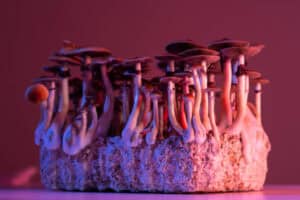
Psilocybin’s Role in Treating Addiction
Psilocybin-assisted therapy has shown promise in treating substance use disorders, including addiction to nicotine, alcohol, and opioids. The therapy involves guided sessions with psilocybin in a controlled setting, aiming to facilitate deep psychological insights and help individuals understand the root causes of their addictive behaviors.
Several studies have demonstrated the effectiveness of psilocybin-assisted therapy in treating addiction, including higher success rates compared to traditional methods. Researchers believe that psilocybin may help “reset” certain neural circuits in the brain, breaking the cycle of addiction.
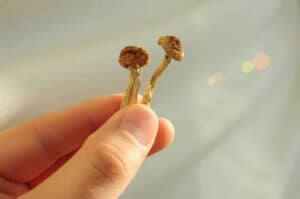
Risks of Psilocybin Use
While psilocybin mushrooms are not addictive, they can pose risks. The psychedelic experience can trigger anxiety, fear, or panic in some individuals, particularly those with underlying mental health issues. Legal consequences are also a concern, as possession, sale, or use of psilocybin mushrooms can lead to legal issues depending on the jurisdiction.
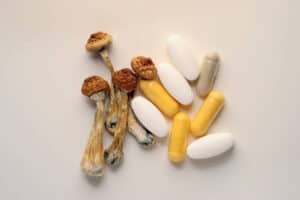
Conclusion
Psilocybin mushrooms are not addictive in the traditional sense, as they do not cause physical dependence or withdrawal symptoms. However, it’s essential to approach psilocybin responsibly and cautiously, particularly for individuals with a history of substance abuse or mental health issues.
The therapeutic potential of psilocybin-assisted therapy is promising, offering a new approach to treating addiction. As research continues, we may uncover more about the benefits and risks of psilocybin, paving the way for better understanding and treatment of addiction.
References
Goel, D. B., & Zilate, S. (2022). Potential Therapeutic Effects of Psilocybin: A Systematic Review. Cureus, 14(10), e30214. https://doi.org/10.7759/cureus.30214
Johnson, M. W., Griffiths, R. R., Hendricks, P. S., & Henningfield, J. E. (2018). The abuse potential of medical psilocybin according to the 8 factors of the Controlled Substances Act. Neuropharmacology, 142, 143–166. https://doi.org/10.1016/j.neuropharm.2018.05.012
Ling, S., Ceban, F., Lui, L. M. W., Lee, Y., Teopiz, K. M., Rodrigues, N. B., Lipsitz, O., Gill, H., Subramaniapillai, M., Mansur, R. B., Lin, K., Ho, R., Rosenblat, J. D., Castle, D., & McIntyre, R. S. (2022). Molecular Mechanisms of Psilocybin and Implications for the Treatment of Depression. CNS drugs, 36(1), 17–30. https://doi.org/10.1007/s40263-021-00877-y
Lowe, H., Toyang, N., Steele, B., Valentine, H., Grant, J., Ali, A., Ngwa, W., & Gordon, L. (2021). The Therapeutic Potential of Psilocybin. Molecules (Basel, Switzerland), 26(10), 2948. https://doi.org/10.3390/molecules26102948
Passie, T., Seifert, J., Schneider, U., & Emrich, H. M. (2002). The pharmacology of psilocybin. Addiction biology, 7(4), 357–364. https://doi.org/10.1080/1355621021000005937


